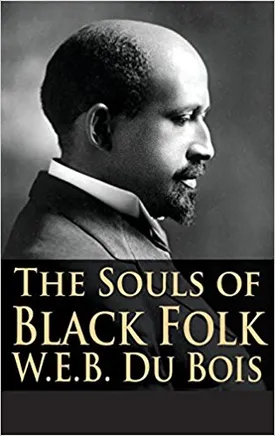William Edward Burghardt Du Bois
William Edward Burghardt Du Bois, born in Massachusetts in 1868, is considered one of the most influential African-American thinkers of the 20th century. His works on race and equality, especially The Souls of Black Folk and The Crisis, have been highly influential in the civil rights movement, and he was an early advocate of Pan-Africanism. Du Bois was pivotal in founding the NAACP and acted as editor-in-chief of its newsletter The Crisis.
Du Bois was born in Great Barrington, Massachusetts, in 1868. His father, Alfred Du Bois, was a freeman of mixed African and French heritage. His mother, Mary Silvina Burghardt, was a descendant of slaves. Even as a child, Du Bois was known as an exceptionally bright student and was fluent in several languages.
Du Bois earned a bachelor's degree from Fisk University in 1888, the first African American to be awarded the degree, and then went on to complete his doctoral studies in 1895. His doctoral dissertation, "The Suppression of the African Slave Trade to the United States of America," explored US history and presented evidence of racial prejudice and economic disparities.
Du Bois was a prolific writer and his works had a significant impact on the civil rights movement. His most famous book, The Souls of Black Folk, was published in 1903 and is considered to be one of the first books of its kind. In it, Du Bois argues that due to their place in society, African-Americans have a unique experience and understanding of the world. It is an essential text in the African-American literary canon, as it exposes the culture of racism and inequality that pervades American society.
Du Bois became the editor-in-chief of The Crisis in 1910, a magazine dedicated to African-American advancement and civil rights which he helped to found. Throughout the 1910s and 20s, The Crisis was frequently cited in debates on race and civil rights, and had a wide circulation among educated African Americans.
Du Bois was also an advocate of Pan-Africanism, the idea of collective liberation for people of African descent all over the world, and argued against segregation, imperialism, and colonialism. He attended the first Pan-African Conference in London in 1900 and went on to attend seven of these conferences. He also wrote about African-American scholarship and explored issues of economic inequality.
Over the course of his long career, Du Bois wrote 23 books and hundreds of essays, and campaigned for African-American rights and education. In 1946, he was a founding member of the Communist Party, an act which made him controversial among African-American organizations. Once seen as a figure of hope for African-Americans, he split the opinions of those who both held him in high esteem and those who reviled him. Despite disagreements, it cannot be denied that Du Bois was one of the most influential minds of the civil rights movement, and is remembered with profound gratitude by many. Du Bois died in 1963 in Ghana, where he spent the last five years of his life as a citizen of the newly independent country.

